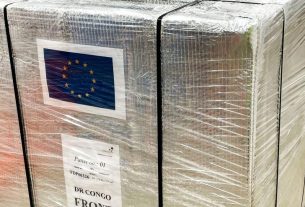The Islamic State Khorasan Province (ISKP), affiliated with ISIS, has claimed responsibly for killing 14 men in Daikundi province this week, the latest attack on the Hazara community in Afghanistan.
The killings took place in a remote border district between Daikundi, which has a predominantly Hazara population, and Ghor provinces, in central Afghanistan. The men were returning from a pilgrimage to Shia holy sites in Karbala, Iraq when gunmen opened fire on the group.
Since emerging in Afghanistan in 2015, ISKP has killed and injured thousands of Hazaras and members of other religious minorities in attacks targeting mosques, schools, and workplaces. After the Taliban took over Afghanistan in August 2021, ISKP has claimed responsibility for at least 17 attacks against Hazaras, killing and injuring more than 700 people.
In October 2021, Human Rights Watch concluded that ISKP bombings and other targeted attacks against the Hazara community amounted to crimes against humanity. Richard Bennett, the United Nations special rapporteur on human rights in Afghanistan, has called for investigations into ISKP attacks. This latest attack underscores the urgent need for the Taliban to take effective measures to protect all at-risk communities in Afghanistan, including Hazaras and other Shia Muslims.
Governments engaging with the Taliban should also call for better protection for these communities and encourage and support mechanisms to strengthen accountability for international crimes committed in Afghanistan.
The Office of the Prosecutor of the International Criminal Court has an ongoing investigation in Afghanistan limited to alleged crimes by the Taliban and ISKP. Governments should back the office with the financial, logistical, and political support it needs to carry out these investigations.
The UN Human Rights Council, which is currently meeting in Geneva, should heed the call by Afghan and international human rights groups to establish a comprehensive international mechanism on Afghanistan to advance accountability for these and other grave abuses. Survivors and the families of victims need support in their quest for justice in a country where perpetrators of grave abuses have enjoyed impunity for more than four decades.


